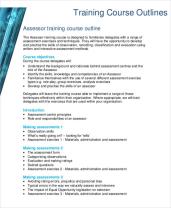What are the requirements for subsitute teachers?
The specific requirements for substitute teachers can vary depending on the school district, state, or country. However, there are common qualifications and steps that substitute teachers typically need to meet. Keep in mind that these are general guidelines, and you should check with the school district or educational institution where you plan to substitute for the most accurate and up-to-date information. Here are common requirements for substitute teachers:
Educational Background:
- Most school districts require substitute teachers to have at least a high school diploma or equivalent. Some may prefer or require a bachelor's degree, especially for long-term or regular substitute positions.
Teaching Certification:
- While not always mandatory, having a teaching certificate or substitute teaching permit can enhance your eligibility. Some areas may require substitute teachers to obtain a substitute teaching license or permit.
Background Check:
- A criminal background check is typically required for all individuals working in schools. This is to ensure the safety of students. Felony convictions or certain offenses may disqualify someone from becoming a substitute teacher.
Application Process:
- Substitute teachers usually need to complete an application process with the school district or educational agency. This process may include submitting a resume, references, and other relevant documents.
Orientation or Training:
- Many school districts require substitute teachers to attend an orientation or training session. This may cover school policies, classroom management techniques, emergency procedures, and other essential information.
Availability and Flexibility:
- Substitute teaching often requires flexibility and the ability to be available on short notice. Schools may contact substitute teachers the evening before or the morning of a day they are needed.
Health and Physical Requirements:
- Some school districts may require substitutes to meet certain health and physical requirements, such as passing a medical examination or having up-to-date immunizations.
Demonstrated Skills:
- Schools may look for substitutes with good communication skills, adaptability, and the ability to manage a classroom effectively. Previous experience working with students or in an educational setting may be beneficial.
Age Requirements:
- In some regions, there may be age requirements for substitute teachers. Some areas may have a minimum age, while others may have restrictions on the maximum age for substitutes.
References:
- Providing professional references may be part of the application process. These references can speak to your character, work ethic, and suitability for working with students.
Technology Proficiency:
- As classrooms increasingly use technology, being proficient with basic technology tools may be an advantage for substitute teachers.
It's essential to contact the school district or educational institution directly to inquire about their specific requirements and procedures for hiring substitute teachers. Additionally, staying informed about any changes in local education policies or regulations is crucial for prospective substitute teachers.
Navigating the Landscape of Substitute Teaching Qualifications:
1. Qualifications & Requirements:
The necessary qualifications for aspiring substitute teachers vary across states and even school districts. However, some common requirements include:
- Education: Most districts require at least a Bachelor's degree, though some accept an Associate's degree or specific credits.
- State-Issued Certification: Some states mandate a substitute teaching certification or permit, while others don't. Research your state's regulations.
- Background Check and Drug Test: These are standard requirements to ensure the safety and well-being of students.
- Good Communication and Interpersonal Skills: Building rapport with students and staff is crucial.
- Strong Classroom Management Skills: Maintaining order and fostering a positive learning environment are essential.
2. Recommended Certifications & Training Programs:
- State-Specific Programs: Each state often offers its own substitute teaching certification programs.
- National Programs: The National Substitute Teacher Alliance (NSTA) offers certification programs recognized by some districts.
- Subject-Specific Training: Specialized training in areas like science or special education can be advantageous.
- First Aid and CPR Certification: Demonstrating preparedness for emergencies is valuable.
3. Institutional Variations in Requirements:
School districts can set their own additional requirements beyond state regulations. These might include:
- Minimum GPA: Some districts might require a minimum GPA in your Bachelor's degree.
- Relevant Coursework: Courses in education or specific subject areas might be preferred.
- Teaching Experience: Prior experience in education, even volunteer work, can be beneficial.
- Letters of Recommendation: Strong references can bolster your application.
4. Common Expectations for Substitute Teachers:
Regardless of the district, some core expectations remain constant:
- Delivering Lessons: Following existing lesson plans or adapting them effectively.
- Maintaining Classroom Management: Ensuring a safe and productive learning environment.
- Assessing Student Learning: Evaluating student progress and providing feedback.
- Communicating Effectively: Collaborating with regular teachers, students, and school staff.
- Professionalism and Flexibility: Adapting to diverse situations and upholding ethical conduct.
5. Professional Development Opportunities:
Many school districts and professional organizations offer ongoing development opportunities for substitute teachers. These can include:
- Workshops and Training Sessions: On topics like classroom management, differentiated instruction, and technology integration.
- Online Courses and Webinars: Flexible options for professional development on your own schedule.
- Mentorship Programs: Pairing with experienced teachers for guidance and support.
- Networking Events: Building connections with other substitute teachers and educators.
By understanding the qualifications, expectations, and professional development opportunities, you can prepare yourself for a successful and rewarding career as a substitute teacher. Remember, research your specific state and district requirements and actively seek learning opportunities to continually enhance your skills and knowledge.












